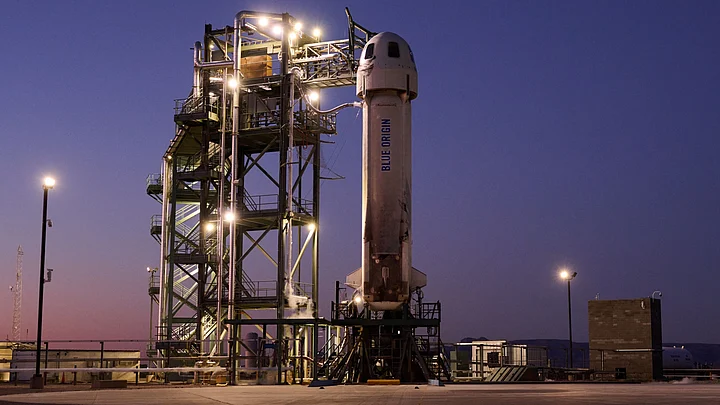Jeff Bezos' aerospace company Blue Origin suffered its first major setback on Monday, 12 September, as its New Shepard rocket failed mid-flight. There were no humans on board.
The 23rd New Shepard mission, intended to carry NASA-funded experiments and other payloads to the edge of space, experienced a “booster failure” after its launch from West Texas on Monday morning.
"During today’s flight, the capsule escape system successfully separated the capsule from the booster. The booster impacted the ground. There are no reported injuries; all personnel have been accounted for," Blue Origin said.
Entire New Shepard Fleet Grounded
Just over a minute after the lift-off, and roughly 5 miles (8.05 km) above ground, the booster's engines flared unexpectedly, causing the capsule's abort motor system to be triggered, taking it away from the rocket before floating back to earth using a parachute.
The United States Federal Aviation Administration (FAA), which oversees and regulates launch site safety, told Reuters that the booster crashed within a designated hazard area.
Blue Origin's entire fleet of New Shepard rockets has been grounded until the FAA signs off on the outcome of a company investigation into the accident, the agency added.
While this was an uncrewed launch, a version of this spacecraft is regularly used to send human beings to the edge of space and back under Blue Origin's suborbital space tourism business.
In all, New Shepard has taken 31 paying customers about 62 miles above the earth's surface for a few minutes of microgravity before their capsule returns to the land using parachutes.
(With inputs from Reuters.)
(At The Quint, we question everything. Play an active role in shaping our journalism by becoming a member today.)
